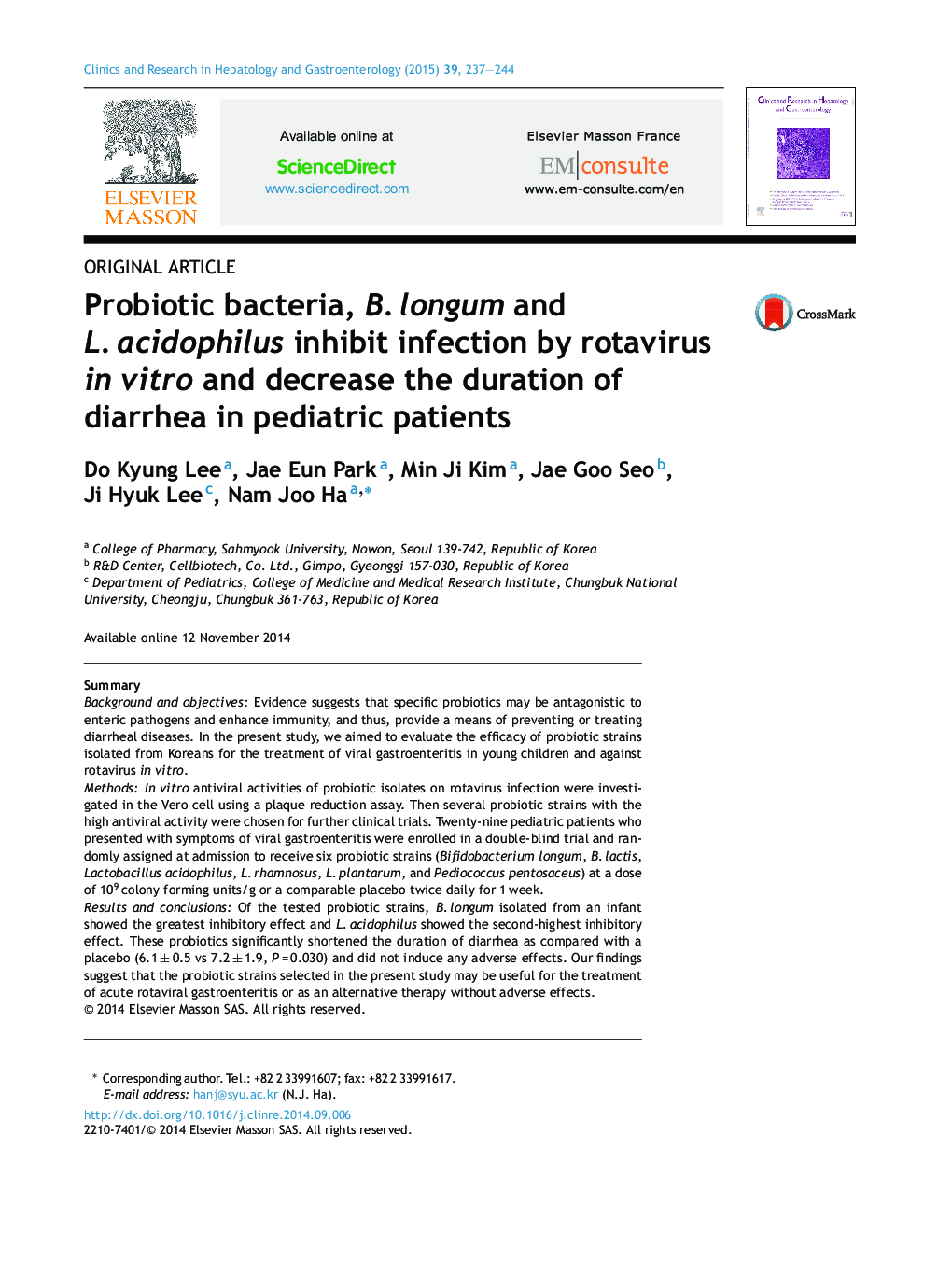| Article ID | Journal | Published Year | Pages | File Type |
|---|---|---|---|---|
| 3286174 | Clinics and Research in Hepatology and Gastroenterology | 2015 | 8 Pages |
SummaryBackground and objectivesEvidence suggests that specific probiotics may be antagonistic to enteric pathogens and enhance immunity, and thus, provide a means of preventing or treating diarrheal diseases. In the present study, we aimed to evaluate the efficacy of probiotic strains isolated from Koreans for the treatment of viral gastroenteritis in young children and against rotavirus in vitro.MethodsIn vitro antiviral activities of probiotic isolates on rotavirus infection were investigated in the Vero cell using a plaque reduction assay. Then several probiotic strains with the high antiviral activity were chosen for further clinical trials. Twenty-nine pediatric patients who presented with symptoms of viral gastroenteritis were enrolled in a double-blind trial and randomly assigned at admission to receive six probiotic strains (Bifidobacterium longum, B. lactis, Lactobacillus acidophilus, L. rhamnosus, L. plantarum, and Pediococcus pentosaceus) at a dose of 109 colony forming units/g or a comparable placebo twice daily for 1 week.Results and conclusionsOf the tested probiotic strains, B. longum isolated from an infant showed the greatest inhibitory effect and L. acidophilus showed the second-highest inhibitory effect. These probiotics significantly shortened the duration of diarrhea as compared with a placebo (6.1 ± 0.5 vs 7.2 ± 1.9, P = 0.030) and did not induce any adverse effects. Our findings suggest that the probiotic strains selected in the present study may be useful for the treatment of acute rotaviral gastroenteritis or as an alternative therapy without adverse effects.
